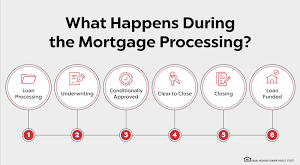Mortgage Rate Forecast: Trends, Tips, and FAQs for Homebuyers. Mortgage rates significantly impact your decision to purchase a home or refinance an existing loan. Understanding trends, knowing what influences rates, and anticipating future changes can save you thousands of dollars. This guide dives into the essentials of mortgage rate forecasts, offering practical tips, frequently asked questions (FAQs), and strategies to navigate the complex world of home financing.
Introduction to Mortgage Rate Forecast
Mortgage rate forecasts provide insight into how interest rates are expected to change over time. These predictions help prospective homebuyers, investors, and current homeowners make informed decisions.
In recent years, rates have fluctuated due to factors such as inflation, government policies, and economic growth. By staying informed, you can time your mortgage decisions to secure the best rates.
What Affects Mortgage Rates?
- Economic Indicators: Inflation, employment rates, and GDP growth all influence interest rates.
- Federal Reserve Policies: The Federal Reserve adjusts interest rates to stabilize the economy, directly impacting mortgage rates.
- Market Demand for Mortgages: When demand is high, lenders may raise rates.
- Global Events: Geopolitical events, pandemics, and financial crises can create volatility.
- Credit Market Trends: Changes in bond yields, especially the 10-year Treasury yield, strongly correlate with mortgage rates.
Current Mortgage Rate Trends
- Rising Rates: Due to inflation, mortgage rates have been on the rise recently, with predictions suggesting further increases.
- Regional Variations: Rates can vary by location based on local economic conditions and lender competition.
- Type of Loan: Fixed-rate and adjustable-rate mortgages (ARMs) follow different trends; ARMs often react more quickly to market changes.
Forecast for the Next Year
Experts predict mortgage rates may stabilize if inflation cools and the economy moderates. However, potential risks like global economic instability could cause spikes. Monitoring updates from reliable sources, such as the Federal Reserve and financial analysts, is essential.
How to Prepare for Mortgage Rate Changes
- Lock in Rates Early: If you anticipate a rate hike, consider locking in a low rate with your lender.
- Improve Your Credit Score: A higher credit score can help you qualify for better rates.
- Save for a Larger Down Payment: Reducing the loan-to-value ratio can lower your rate.
- Shop Around: Compare offers from multiple lenders to find the best deal.
Top 10 Tips for Navigating Mortgage Rate Forecasts
- Monitor Economic News: Stay updated on factors influencing interest rates.
- Consult Financial Experts: Get advice tailored to your financial goals.
- Use Online Tools: Mortgage calculators and rate comparison sites can simplify decision-making.
- Choose the Right Mortgage Type: Consider the pros and cons of fixed-rate vs. ARM.
- Revisit Your Budget: Adjust your expectations based on forecasted rates.
- Negotiate with Lenders: Ask about discounts or special programs.
- Explore Government Programs: Look into FHA or VA loans for potentially lower rates.
- Avoid Big Purchases: Maintaining financial stability improves lender confidence.
- Consider Points: Paying for discount points upfront can lower your interest rate over time.
- Keep an Emergency Fund: Prepare for unexpected changes in financial conditions.
Top 10 FAQs About Mortgage Rate Forecasts
- What is a mortgage rate forecast?
A prediction of future mortgage interest rates based on economic and financial data. - How often do mortgage rates change?
Rates can change daily or even multiple times a day depending on market conditions. - Why are fixed and adjustable rates different?
Fixed rates remain constant over the loan term, while adjustable rates fluctuate based on an index. - Can I trust mortgage rate forecasts?
Forecasts provide a general direction but are not guaranteed due to market unpredictability. - What is a rate lock?
A lender’s guarantee to hold a specific interest rate for a set period, protecting against increases. - How does my credit score affect mortgage rates?
Higher scores typically qualify for lower rates, as they represent lower risk to lenders. - What’s the best time to refinance?
When current rates are significantly lower than your existing mortgage rate. - Do global events impact US mortgage rates?
Yes, events like wars or pandemics can disrupt financial markets, affecting rates. - What’s the difference between APR and interest rate?
APR includes fees and other costs, while the interest rate only reflects the cost of borrowing. - Can I negotiate mortgage rates with my lender?
Yes, some lenders are open to negotiation, especially if you have strong financial credentials.
Conclusion
Understanding mortgage rate forecasts is crucial for making informed financial decisions. With rates influenced by numerous factors, including economic policies and global events, staying informed is your best tool.
By applying the tips outlined here and consulting experts, you can navigate this complex landscape with confidence. Whether you’re a first-time homebuyer or considering refinancing, preparation and knowledge will empower you to secure the most favorable terms for your needs.
 mortgage.kbk.news
mortgage.kbk.news
